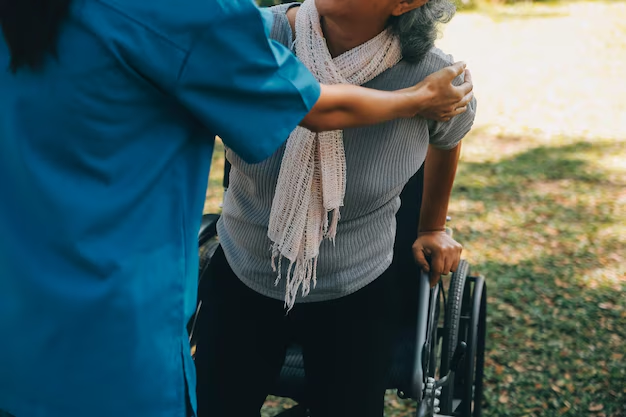Your Guide to Can Parkinson's Cause Death
What You Get:
Free Guide
Free, helpful information about Parkinsons FAQ and related Can Parkinson's Cause Death topics.
Helpful Information
Get clear and easy-to-understand details about Can Parkinson's Cause Death topics and resources.
Personalized Offers
Answer a few optional questions to receive offers or information related to Parkinsons FAQ. The survey is optional and not required to access your free guide.
Understanding the Fatal Impact of Parkinson's Disease
Parkinson's disease is a degenerative disorder that primarily affects movement, but as it progresses, it can impact much more—potentially leading to life-threatening complications. A common question arises: can Parkinson's cause death? The answer is complex. While Parkinson's itself is not typically listed as a cause of death, the complications arising from the disease can be deadly.
How Parkinson's Affects the Body
Parkinson's disease starts with the death of dopamine-producing neurons in the brain, affecting movement and coordination. Early signs include tremors, stiffness, and balance issues. As the condition progresses, symptoms can become more severe, leading to difficulties in swallowing, severe mobility restrictions, and increased risk of falls.
Common complications associated with advanced Parkinson's include:
- Pneumonia: Difficulty swallowing can lead to aspiration, where food or liquids enter the lungs, causing potentially fatal infections like pneumonia.
- Falls: Motor symptoms increase the risk of falls, which can result in serious injuries such as fractures or head trauma.
- Depression and Anxiety: Mental health challenges can worsen overall health outcomes.
- Cognitive Decline: Some individuals may experience Parkinson's disease dementia, which complicates care and can result in life-threatening situations.
Navigating Life with Parkinson's
Living with Parkinson's requires careful management of symptoms and complications, often necessitating a comprehensive care team. This can include neurologists, physical therapists, speech therapists, and mental health professionals. Financial and emotional burdens are common as care needs increase, making resources like government aid and financial assistance crucial for patients and families.
Financial Assistance and Resources for Parkinson's Patients
Navigating the financial implications of a chronic illness can be daunting. Thankfully, numerous programs offer support:
Government Aid Programs: Government programs such as Medicaid, and Social Security Disability Insurance (SSDI) can provide essential financial relief for those unable to work due to Parkinson's complications.
Healthcare Financial Assistance: Programs like Medicare can help cover medical costs, including necessary hospital stays and some outpatient services.
Debt Relief Options: Patients facing overwhelming medical debts may benefit from consulting financial advisors who specialize in medical debt relief strategies.
Educational Grants: Family members of Parkinson’s patients may qualify for educational grants or scholarships aimed at relieving the educational financial burden during care crises.
Conclusion
While Parkinson’s disease itself may not directly cause death, its complications can be life-threatening. Understanding and managing these risks, alongside exploring available resources, is crucial for patients and caregivers. Empowerment through knowledge and timely access to financial assistance plays a pivotal role in handling the burdens of Parkinson's disease.
Here are some key financial and educational resources to consider:
- 💊 Medicaid & Medicare: For comprehensive medical coverage and assistance.
- 💼 Social Security Disability Insurance (SSDI): To support those unable to work.
- 🏦 Debt Relief Programs: Specialized solutions for managing medical debt.
- 🎓 Educational Grants: Financial support for family members continuing education.
With the right resources and support, managing Parkinson's disease, while challenging, can become less overwhelming for those affected and their loved ones.
What You Get:
Free Parkinsons FAQ Guide
Free, helpful information about Can Parkinson's Cause Death and related resources.

Helpful Information
Get clear, easy-to-understand details about Can Parkinson's Cause Death topics.

Optional Personalized Offers
Answer a few optional questions to see offers or information related to Parkinsons FAQ. Participation is not required to get your free guide.


Discover More
- Are There Environmental Causes Of Parkinsons
- Can Alcohol Cause Parkinson's
- Can Concussions Cause Parkinson's
- Can Concussions Cause Parkinson's Disease
- Can Dogs Get Parkinson's Disease
- Can Dogs Get Parkinsons
- Can Dogs Have Parkinson's
- Can Dogs Have Parkinson's Disease
- Can Females Get Parkinson Disease
- Can Head Trauma Cause Parkinson's
